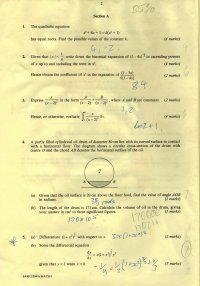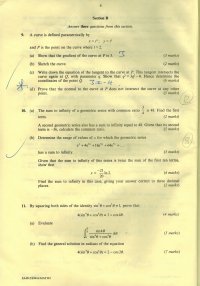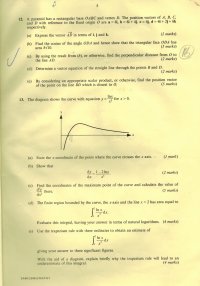It’s not just the numbers that are mad, it’s the degree courses available. For example:
Fans of The Beatles are being invited to study for a master's degree in the Fab Four at the University of Liverpool.
Students on The Beatles: Music Industry and Heritage MA course will learn about the group's influence on popular music and culture, its programme leader said.
Dr Holly Tessler said it was "unique" because it explored the band's legacy.
Harvard offers one in Madonna studies.
Here’s a few more questionable courses.
1. Surf Science and Technology
Uni of Plymouth -This BSc (Hons) course examines the scientific, technical and business aspects of the surfing industry. But what's wrong with just watching Baywatch?
2. Stand-up comedy
Uni of Kent, Uni of Salford -Comedian Peter Kay honed his craft by taking this course while completing an HND at the University of Salford. So it's obviously no laughing matter
3. International Football Management
Buckingham Chilterns Uni Coll -Students learn about the running of the international game and get to visit clubs abroad. But you don't need to have a degree to do a better job than Sven
4. Brewing and Distilling
Heriot-Watt University -Lives up to the jibe about taking a drinking degree. It covers the A-Z of alcohol and is sure to have lots of ideas to try out at student parties
5. Golf Management Studies
University of Birmingham -This course includes three 10-week summer placements to improve "coaching and management skills". So it is not just about hitting balls around courses, then
6. Space Technology/ Planetary Exploration
University of Surrey -One small step for a man, one giant leap for mankind and students. Many are over the moon at taking the course but the real thing isn't included
7. Wine Business
University of Brighton -Surely the dream of every student, the two-year course includes "wines and spirits of the world" and "wine sensory evaluation" - tasting to you
8. Economics and Gambling Studies
University of Salford -This BSc course is combined with business economics and examines gambling from a social, economic and cultural perspective. You can bet it is popular
9. Baking Technology
Uni of Wales Institute - For every student who has ever wondered how they get the jam into doughnuts. Many say that this course is the greatest thing since sliced bread
10. Stained Glass Window Studies
Swansea Institute -This BA (Hons) degree is an intensive three-year course specialising in the study of architectural stained glass. A real window of opportunity
I’m thinking of developing a 4-year course called ‘Understanding the Mechanical and Electrical Systems and Operation of the VW California’ and offering it to all dealerships.

















